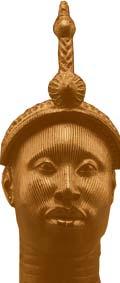
MONDAY, NOVEMBER 03, 2025


MONDAY, NOVEMBER 03, 2025
Yusuf Oketola
Mixed reac ons have con nued to trail President Bola Tinubu’s approval of a 15 per cent import duty on petrol and diesel, as Nigerians express concern over its likely impact on living costs and infla on.
The new policy, announced on October 29, mandates importers to pay a 15 per cent levy on the cost, insurance, and freight (CIF) value of imported fuel; a move experts say could add up to ₦150 per litre to pump prices.
Energy law expert Ayodele Oni, Partner and Chair of the Energy and Natural Resources Prac ce Group at Bloomfield Law Prac ce, told the News Agency of Nigeria (NAN) that while the measure is meant to protect local refineries, it risks worsening fuel prices and supply challenges.
“The imposi on of a 15 per cent duty will raise landing costs, and the burden will be transferred to consumers,” Oni warned, cau oning that without robust local refining, the move could trigger scarcity and black-market sales.
Cri cs, including Prince Adewole Adebayo, 2023 presiden al candidate of the Social Democra c Party (SDP), described the duty as an -people. “If you impose a 15 per cent tariff on imported petrol, who will pay for it? The consumer at the filling sta on,” he said.
Similarly, APC chie ain and oil investor Ayiri Emami cau oned that the policy would “hurt ordinary Nigerians more than marketers,” no ng that “whatever tax you put on petroleum goes straight back to the people on the streets.”
However, Dangote Petroleum Refinery hailed the move as a bold step toward strengthening local refining and curbing the influx of substandard imports. Its spokesman, Anthony Chiejina, said the duty aligns with Nigeria’s
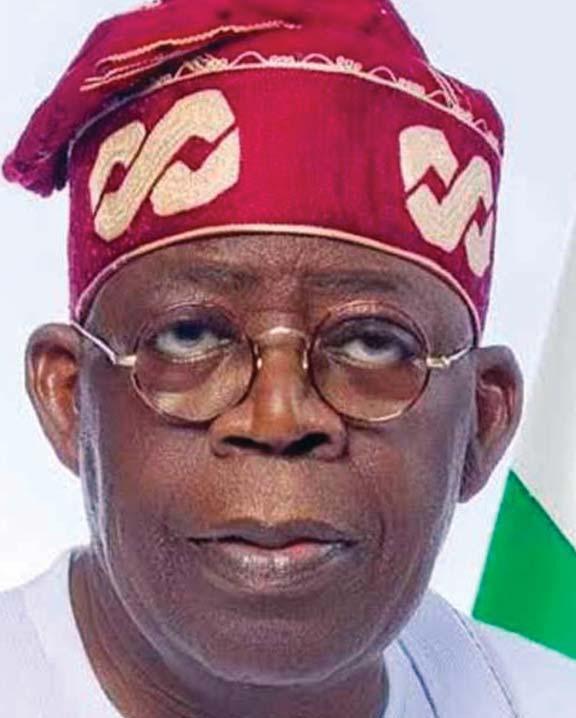
•Tinubu
industrial and economic recovery goals.
The Petroleum Products Retail Outlets Owners Associa on of Nigeria (PETROAN) also backed the policy. Its Na onal President, Billy Harry, argued that the measure would “boost local refining, create jobs, and stabilise the naira,” even though it might
cause short-term price increases.
But the African Democra c Congress (ADC) faulted the policy as “ill- med and insensi ve.” Na onal Chairman Chief Ralph Nwosu warned it could push pump prices above ₦1,000 per litre, worsening the economic hardship facing Nigerians.
“The government cannot keep squeezing ci zens already gasping under inflaon, high transport fares, and rising food prices,” Nwosu said.
On social media, opinions remained divided. While some users supported the policy’s objec ve, they ques oned its ming. One X user, @EsvAutchman, wrote: “We should encourage local produc on, but the ming is wrong. We need enough refining capacity first.”
Others were more crical. @ThreadSnatcher posted: “Tinubu removed subsidies for the people, now he’s adding new taxes for his friends. This isn’t reform — it’s repackaged greed.”
Economic analysts believe the administra on’s goal is to s mulate local refining and strengthen the naira. Yet they warn that Nigerians are likely to feel the immediate pressure through higher fuel and transport costs.
The Presidency insists the new import duty is a long-term measure to promote energy security, a ract investment, and end overreliance on imported petroleum products.
Kazeem Badmus
FIVE governorship aspirants under the pla orm of the African Democra c Congress (ADC) have officially obtained nomina on forms ahead of the 2026 Eki Governorship Elec on.
Those who picked up the forms include former Deputy Governor, Prof. Olusola Eleka (Ikere); Amb. Dare Bejide (Ilawe);
Otunba Emmanuel Fayose (Afao); Barr. Femi Adegbite (Ado-Eki ); and Apostle David Adesua (Ijesa-Isu).
In a statement issued on Sunday by the party’s Director of Media, the ADC commended the aspirants for their courage and belief in the party’s vision of transparent and people-centred governance.
The statement assured
all aspirants of a level playing field, no ng that the ADC remains a model of internal democracy where integrity and service drive leadership selec on.
As prepara ons intensify ahead of the 2026 poll, the party reaffirmed its commitment to presen ng Eki people with a credible alterna ve rooted in jus ce, competence, and compassion.

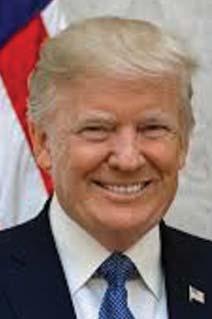
THE leadership and members of Omoluabi Progressives have resolved to pick its aspirant for the December 12 primary of the African Democra c Congress (ADC), ahead of the 2026 governorship elec on in Osun State from the West Senatorial District.
The tendency also agreed to present a consensus aspirant ahead of the shadow elec on.
OSUN DEFENDER reports that the decision was reached at the monthly mee ng of the poli cal organisa on held in Ilesa, on Sunday.
Addressing stakeholders, ADC Na onal Secretary, Ogbeni Rauf Aregbesola said the decision was to ensure that the tendency presents a united front.
Aregbesola also assured that aspirants in other segments of the party will be given a level playing ground to par cipate in the primaries.
The former Governor of Osun also added that the solidifica on of the ADC in the nine federal cons tuencies of the
state will commence soon.
He said, “We have resolved at the apex body to present a single formidable aspirant for the December 12 primaries of our great party, ADC.
“This is to enable us show a strong outing and a united front ahead of what is coming. Other aspirants in the party can come on board. There is a level playing ground for everyone.
“The decision of our apex body at the Omoluabi Progressives is that our aspirant will come from the West Senatorial District. We are very United and I am happy that the dedica-
on of our stakeholders has contributed to the success we are recording in our acvi es.
“We are glad that since our tendency came out in August 2023, our strength has not diminished, we have con nued to soar. It is a clear sign that this movement is of God’s direc on.
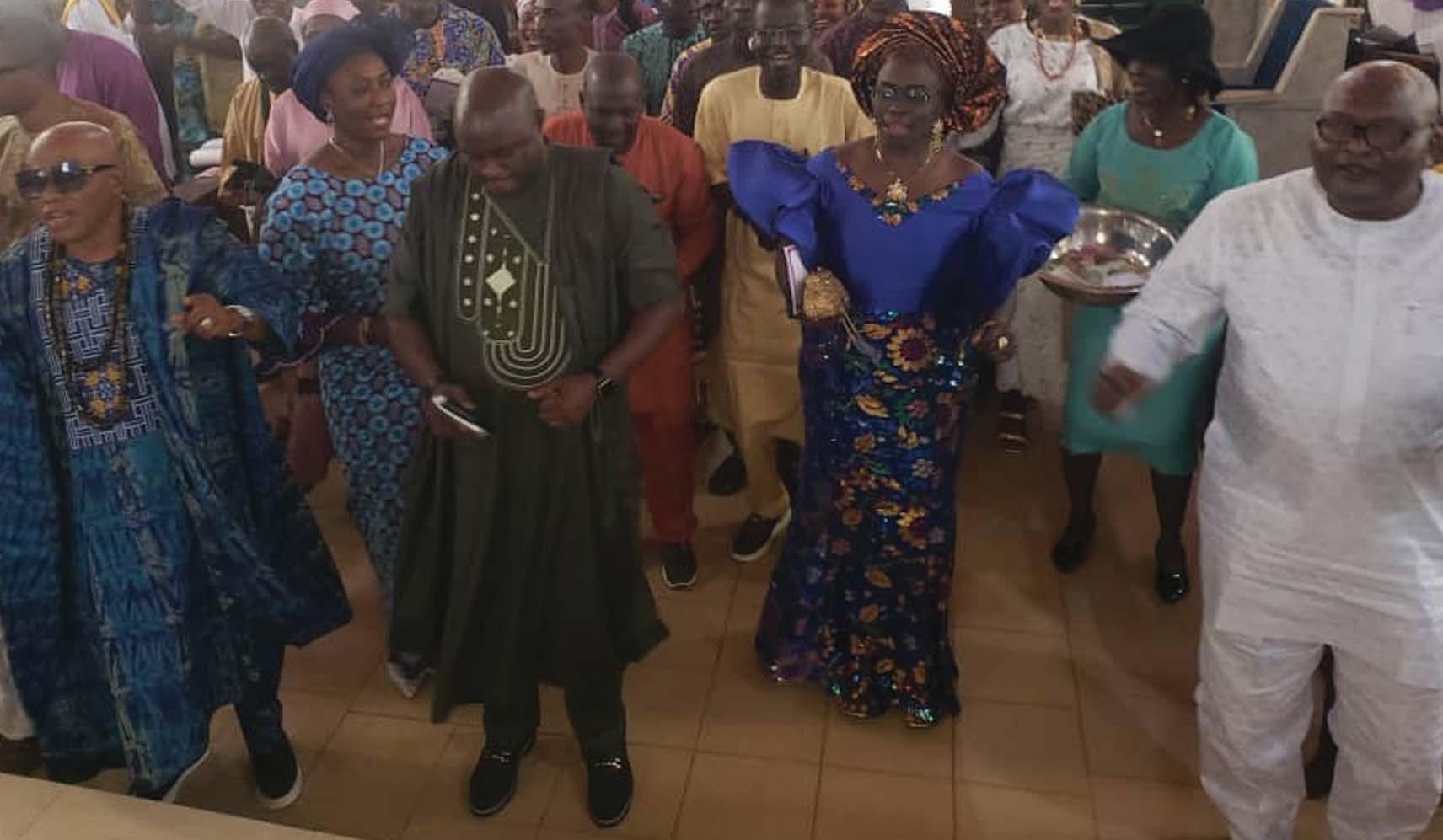
HUMAN rights acvist and former presidential candidate, Omoyele Sowore, has said that Nigeria’s redemp on depends on responsible leadership and not foreign interven on.
Sowore stated this in reac on to comments by former United States President, Donald Trump, who recently declared that Chris anity faces an
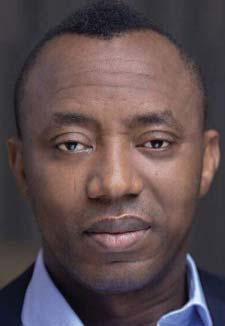
“existen al threat” in Nigeria.
Trump, in a post on his Truth Social pla orm on Friday, described Nigeria as a Country of Par cular Concern (CPC)over alleged persecu on and genocide against Chris ans.
“Chris anity is facing an existen al threat
in Nigeria. Thousands of Chris ans are being killed. Radical Islamists are responsible for this mass slaughter. I am hereby making Nigeria a ‘country of par cular concern,’” Trump said.
Responding via his verified X handle on Saturday, Sowore dismissed Trump’s claim
as misplaced concern, saying the country’s real problem was not religion but leadership failure.
According to him, the state has consistently failed to protect its ci zens—Chris ans, Muslims, and tradionalists alike—due to decades of corrup on
THE Ogunsua of Modakeke, Oba Joseph Olu Toriola, has suspended the planned installa on of Mrs Saaratu Saminu as the new Iyaloja (Market Leader) of the town following a court order on Friday.
The development followed a lingering dispute over the removal of the former Iyaloja, Alhaja Khadijat
Ibraheem Araokanmi, which had sparked controversy in the community.
The installa on, earlier scheduled for the weekend, was halted a er an Ibadan High Court under Suit No. I/B05/2025 restrained further ac on.
In a statement signed by Chief Moshood Oni, the Palace Secretary, the Ogunsua Palace officially dissoci-
ated itself from all proceedings related to the contested installa on, pending the court’s decision.
Copies of the direc ve were sent to key market leaders, including Chief Olumuyiwa Odebode (Parakoyi), Chief Moshood Olagoke (Babaloja), and Mr. Tunde Adebayo (Market Secretary), to ensure full compliance.
and bad governance.
“Nigeria should have long been cited as a country of concern for its persistent failure to protect its ci zens. The government has failed to safeguard the vulnerable—children, women, students, workers, and the elderly—under the weight of corrup on and illegi mate leadership,” Sowore said.
He acknowledged the suffering of Chrisan communi es in parts of Benue, Plateau, Gombe, and Kaduna, but added that Muslim popula ons in states like Katsina, Zamfara, Borno, and Yobe also endure the same insecurity and hardship.
“Across the na on, Nigerians whipped by hunger, poverty, and displacement cry out for safety and dignity,” he added.
“The truth is we will con nue to go higher and higher. Our resilience has proven that we are on course, and by the grace of God, we will get there,” Aregbesola noted.
Ahead of the meeting, members of Osun State Membership Mobilisa on, Revalida on And Registraon Commi ee of the ADC paid a working visit to party’s Naonal Secretary.
Its Chairman, Hon. Kamil Akinlade stated that all processes leading to the commencement of its acvi es have been finalised, stressing that the exercise will begin in no distant me.
The African Democra c Congress (ADC) has reacted to comments by former U.S. President Donald Trump describing Nigeria as a “disgraceful country.”
Trump, in a statement on Saturday, warned that the United States could halt all aid to Nigeria if the government failed to address alleged religious persecu on and a acks on Chris ans.
Responding via its mobilisa on wing, ADC Vanguard, the party alleged that Trump’s remark stemmed from his knowledge of “files buried with the FBI” linked to Nigeria’s leadership.
The ADC stated that Nigerians are now “paying the price of shame” caused by corrupt and unaccountable leaders, stressing that only the ADC can restore the naon’s lost dignity.

The statement from the government of the United States about the security situa on which is not ruling out anything should be enough reason to have a pause and embark on a strategic review of the causes and effects of the ongoing security situaon in Nigeria.
It is now very bothersome. We cannot con nue to live in denial and we must now examine the op ons nothing must be ruled out. The recent changes in personnel at the top indicates a fixaon with a great man theory in which persona rather than strategy
“The current dysfunction lies in the inability to accept that we have not found a response to the asymmetric warfare that the insurgents are waging. We also must accept that insurgents tend to mutate into splinter groups

“We should seek an accomodation with the government of the USA and explain our position. This is the time to widen our coast and put together a coalition in our favour. It will definitely help to Ambassadors in Washington and in the United Nations to drive the process this must be done now with fierce urgency ”
heads the priority list.
This has been proven wrong in the long span of military and poli cal history , the strategic impera ve is key which is why we must have a holis c review.
The current dysfuncon lies in the inability to accept that we have not found a response to
the asymmetric warfare that the insurgents are waging. We also must accept that insurgents tend to mutate into splinter groups . Indeed we ought to have an cipated this possibility and worked out a response.
One op on is to develop or intensify the development of Special forces
trained to operate effecvely in different terrain to contain and obliterate the insurgents. Fixa on on expensive hardware is not enough . Guerilla warfare is a different ball game from conven onal warfare as the history of warfare has shown. A famous example is Diebenphu in Vietnam in 1954. In that famous a rag tag barefooted guerrilla army destroyed a well equipped French Army armed with sophis cated armoury, tanks, Air Force and all. We must now learn the lessons of history.
We should seek an accomoda on with the government of the USA and explain our posi on. This is the me to widen our coast and put together a coali on in our favour. It will definitely help to Ambassadors in Washington and in the United Na ons to drive the process this must be done now with fierce urgency . Overall there must be a strategic review.
By Babatunde Adesokan
Growing up and watching my father sell, we took some cues as per what a smile could do and how your gaze could pummel your would-be customer to make an urgent purchase. We sold to Yoruba and we sold to Fulanis, who o en have the knacks for buying be er ma resses for their marriageable females. Yet, language differences did not at once affect the use of monetary figure and the psychic need to know when and how to close a deal.
Aside that the bus stop engagements unmask the fake lure of Ibadan peacefulness, the city’s park hub is a beehive of lessons for would-be salesperson. Sales there start from compulsory patronage and discre onary patronage; a micra driver and a hawker respec vely. Whilst a micra would not need charms to sell his service, nor eye contact to make his demand sink in, a hawker employs a lot of subtle psychological tac cs to get you to buy.
In fact, neccesary services created a niche for the likes of Micra drivers who may appear rude and seem very en tled but you s ll have to engage their services. Same way a “motherly” nurse might treat her pa ents like they would regard their recalcitrant kids at home. Whereas, a street vendor, even when bereaved, will s ll rile all form of nicees to get you to close purchase.
Because, for someone selling discre onary goods or services the buyer’s choice to
“Aside that the bus stop engagements unmask the fake lure of Ibadan peacefulness, the city’s park hub is a beehive of lessons for would-be salesperson. Sales there start from compulsory patronage and discretionary patronage; a micra driver and a hawker respectively”
buy is based on personal preferences, desires or priori es. A street hawker besides the bus, knows the importance of convincing you to buy. That’s why they build jusfica on for sales. “Iya kaabo, Omo ku ile” roughly translated as “This is a wonderful gi for your children a er sojourn as a mother”. They employ this with the use of charms and eye contact.
Eye contact, to them, serves as a vital hook to grab the a en on of passing or disinterested customers. Vendors employ this deliberately to:
First, establish connec on: this creates a sense of familiarity and rapport with poten al customers. As they say, a en on is in the eyes.
Second, convey enthusiasm: this shows genuine passion for their products, making customers more recep ve to their pitches. Raised eye-brows, bulging eyeballs can show passion or convinc on.
Third, build trust: this demonstrates honesty and transparency, essen al for building trust with customers.
Street vendors, alongside the aforemenoned, have developed unique charming techniques to maintain eye contact, even in the most challenging environments. They might use:
Mirroring: subtly imitate the customer’s body language to create a sense of rapport. Or to s r response from the disinterested buyer.
Proximity: posi on themselves close to the customer, making eye contact more inmate and engaging. A lover’s pose is a trader’s close.
Facial expressions: use warm, genuine smiles to create a welcoming atmosphere. Unlike the Micra driver, the street vendor needs to get that money from your pocket through apppeal. Warmth creates a bias for sales.
Publisher – Moremi Publishing House Ltd.
Asst. News Editor – Yusuf Oketola
Asst. Features Editor – Kazeem Badmus
Deputy Photo Editor – Shola Aderinto
Art of Charm in Sales is to create rapport, diffuse tension and kill skep cism in the mind of the customer, also to highlight benefits in an atten ve way. Some hawkers go as far as telling alarming stories (we remember the usual “molue” pitch), stand up comedy, compliments passing etc.
Deputy Graphics Manager – Zainab Olalere
Produc on Controller – Petkola Taiwo Ibitowa
OSUN DEFENDER is published by Moremi Publishing House Limited, Behind Oranmiyan Building, Gbodofon, Off Gbongan Road, Osogbo, Osun State.
ISSN : 0794-8050
Telephone : 0809-301-9152
Website : www.osundefender.com/index.php e-mail : osundefenderhq@gmail.com osundefenderbank@gmail.com
All correspondence to the above email addresses.
To them on the street, these are not rocket science but necessary skills you pick up through creatvity, flexibility and resilient learning and unlearning. Just like us, as small boys, we subtly imbibed our fathers knacks for closing purchases and remaining a friend to almost every customer for life. #ThingsILearntFromMyFather.

MONDAY, NOVEMBER 03, 2025 VOL. 20 NO 57 www.osundefender.com, email: osundefenderbank@gmail.com
NIGERIA’S equi es market has staged a remarkable rally in recent months, defying the persistent weakness of the broader economy. This paradox reflects a widening disconnect between financial market op mism and the reali es of the produc ve economy the true engine of sustainable growth.
While investors con nue to show confidence in listed firms, the sectors that create real value manufacturing, agriculture, energy, and services remain underperforming. These are the pillars that drive innova on, generate employment, and enhance living standards. Yet their contribu on to na onal output has remained modest.
For instance, the manufacturing sector accounted for just 9.98 percent of GDP in Q1 2024, while agriculture contributed 21.07 percent. Despite overall GDP growth of 3.84 percent in Q4 2024, these figures confirm the narrowness of Nigeria’s produc ve base and the limited structural transforma on of the economy.
A breakdown of GDP by sector shows that services and non-producve ac vi es dominate na onal output a structural imbalance that weakens job crea on, industrial output, and export diversifica on. When the real economy underperforms, produc vity stagnates, domes c capacity erodes, and dependence on imports grows all of which heighten infla on and currency instability.
Liquidity and sen ment driving equi es
The recent market surge has been largely powered by investor sen ment, liquidity flows, and strong corporate results within a handful of sectors notably banking, telecommunica ons, and oil and gas. These firms con nue to post robust profits despite macroeconomic headwinds, a rac ng both local and foreign por olio inflows.
High interest rates, designed to rein in infla on, have made credit expensive for manufacturers while making equi es and money-market instruments more a rac ve. Consequently,
“An economy driven primarily by financial markets risks widening inequality and deepening volatility. Employment creation remains weak, industrial output stagnant, and inclusive growth elusive. History shows that excessive financialisation as seen in Japan in the 1990s or the U.S. before the 2008 crash leads to long-term stagnation once speculative bubbles burst”
By
capital is increasingly flowing toward financial assets rather than produc ve venture.
While Nigeria’s real GDP growth between 2018 and 2024 suggests moderate recovery from the 2020 recession, expansion remains too weak to absorb labour market entrants or significantly boost produc on capacity. Financial sector buoyancy, though posi ve, cannot compensate for persistent weakness in the industrial base.
A global pa ern of divergence Nigeria’s experience is not unique. Globally, stock markets o en rise even when real economies falter. A er the 2008 financial crisis, global equi es rebounded sharply amid liquidity injec ons and monetary easing, despite high unemployment and sluggish output. Similarly, during the COVID-19 pandemic, equity valua ons surged
“SOMEWHERE on a highway (a single carriageway) on the approach to a state capital in South-West Nigeria, I ran into a 1km-long stretch of crawling traffic that for minutes at mes was at complete stands ll. Within minutes, several meters more built up behind me steadily. Nobody a empted to overtake me as I was impulsively tempted to overtake the vehicles in front of me because incoming traffic was very light indeed. I curiously came down from the car to find out what was responsible for this unusual situa on.
“In the middle of the road ahead, liningup at about 20 meters apart for as far as the eyes could see, were smartly dressed, armed police officers, monitoring development. The most stubborn and unruly drivers, soon as they made to overtake and form a new lane facing upcoming traffic, quickly calm down and begged the adjacent vehicle in order to return to the single lane forma on once they sighted the stern looking officers ahead, who hardly ever had to say anything or ges culate. Their look and disposi on alone inside the hot sun was enough to convince any driver to reconsider his/her stupid inten on.
“We spent about one hour to cover a distance of just two kilometers to see a stretch of as much traffic on the opposite lane before moving freely; officers equally lined up on that side, facing the other direcon, ensuring total compliance. I realized that we could have slept there in a possible traffic malady, except for the interven on
even as economies contracted.
These episodes underscore a broader trend financial markets can decouple from real-sector fundamentals, fueling asset bubbles and widening inequality.
In Nigeria, the Stock Market Capitalisa on-to-GDP ra o rose to 28.97 percent in 2024, up from historical averages of 10–15 percent. This sharp increase points to specula ve ac vity and por olio diversifica on rather than genuine expansion of produc ve capacity. Moreover, the Nigerian Exchange remains highly concentrated: about 15 firms accounted for over 85 percent of total market capitalisa on as of late 2023 a sign of vulnerability to shocks.
The cost of neglec ng the real economy
An economy driven primarily by
financial markets risks widening inequality and deepening vola lity. Employment crea on remains weak, industrial output stagnant, and inclusive growth elusive. History shows that excessive financialisa on as seen in Japan in the 1990s or the U.S. before the 2008 crash leads to longterm stagna on once specula ve bubbles burst.
Nigeria must therefore re-anchor its growth strategy around real-sector revitalisa on. This means expanding access to affordable credit for manufacturers and SMEs, improving infrastructure especially energy and logis cs and offering targeted fiscal incen ves for value addi on and export diversifica on.
Improving the ease of doing business, reducing regulatory bo lenecks, and promo ng innova on-led industrialisa on will also strengthen compe veness.
Beyond market euphoria
The soaring stock market should not distract from the urgency of rebuilding Nigeria’s produc ve base. Financial markets may generate shortterm wealth, but las ng prosperity depends on a vibrant real economy that creates jobs, goods, and opportuni es for households and industries alike.
If current trends persist, the gap between market performance and economic reality could widen, deepening inequality and exposing the na on to systemic risk. True growth must reflect not just in market indices, but in factories, farms, and families where real value is created.
of the calm, cool, collected officers, who simply resolutely stood as armed guards in the sun, obtaining sense and discipline from everyone. The sad discovery was that there was a sprawling market that had half taken over the road at cri cal places on the approach to the city.”
The above narra ve was made to Striker by a compatriot. The story, rather than being strange, is one that most readers are not only familiar with but may have personally experienced at some me; the unique aspect only being the interven on of the law enforcers and the deligh ul outcome despite the arduous experience.
Instances and experiences like the above re-humanise us and bring home the realiza on that, clearly, Nigeria can work, and Nigerians are most reasonable and compliant with good rules and regula ons, so long as there is fairness and visible jusce in the enforcement of rules; should those gallant officers do anything in controlling the traffic other than best conduct that they gave, everything would simply turn sour, ugly and nasty as Nigeria in the hands of its rulers today has.
Patrio c Nigerians, across all tribes and religion, are striving hard to drag Nigeria back from ‘the road to Afghanistan.’ Who are the ones that had drugged Nigeria and Nigerians and harried them to that road? That is open secret: the highest level of
rulership and majority of the cri cal statedrivers in Nigeria’s recent history.
There are several redemp ve situa ons and personages that give hope of a turnaround to glory for Nigeria and Nigerians. Nigerians should focus more on these, while preparing in every way they can (within all their social organiza ons: poli cal, community, cultural, intellectual, professional, etc, without regards to religion or ethnicity that is manipulated by many of their rulers to divide them), to rally and unite for victorious struggle against retrogressive forces of darkness, division, exploita on and oppression.
An average Nigerian, anywhere, has no problem with any other average Nigerian from anywhere. Given just leadership, Nigerians are hardworking, enterprising, crea ve, fun-loving and will be law-abiding, when the laws are fairly and equitably enforced. The country has a huge potenal, human and material, to be the world leader; and Nigerians must put that fact at the back of their mind, as one that is not a palatable observa on to any of today’s “interna onal community” to whom most of our despo c rulers are slaves. So, help us God in these direly challenging mes, as we collec vely abandon frivoli es and selfishness, and collec vely work and pray hard with focuson our deliverance and prosperity.
OSUN DEFENDER is published by Moremi Publishing House Limited, Behind Oranmiyan Building, Gbodofon, Off Gbongan Road, Osogbo, Osun State. All correspondence to the Asst. News Editor, YUSUF OKETOLA, Telephone: 0809-301-9152. ISSN: 0794-8050. Website: www.osundefender.com Email: osundefenderbank@gmail.com, osundefenderhq@gmail.com